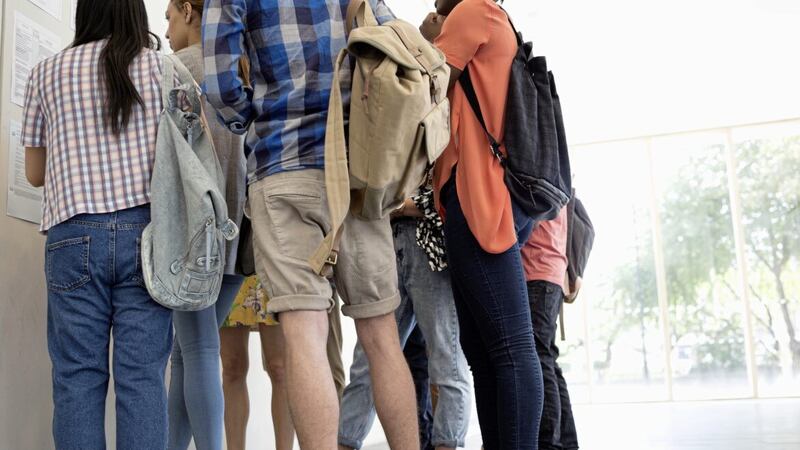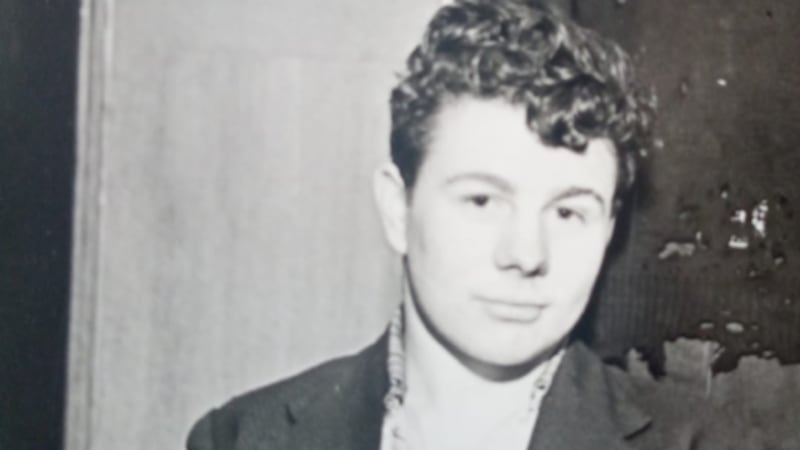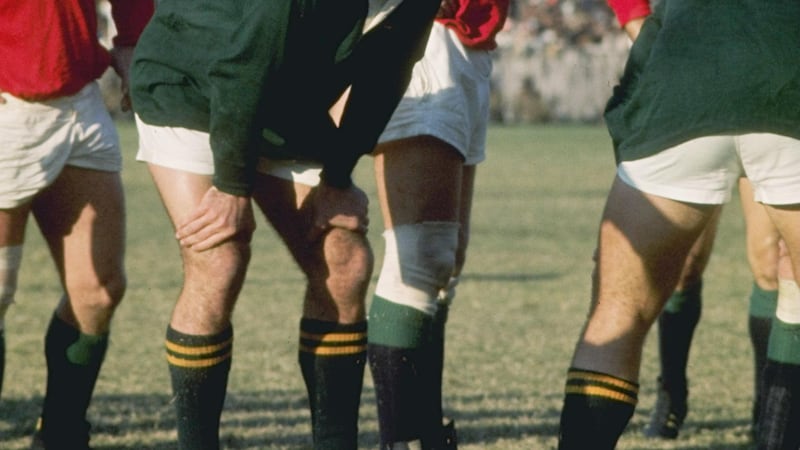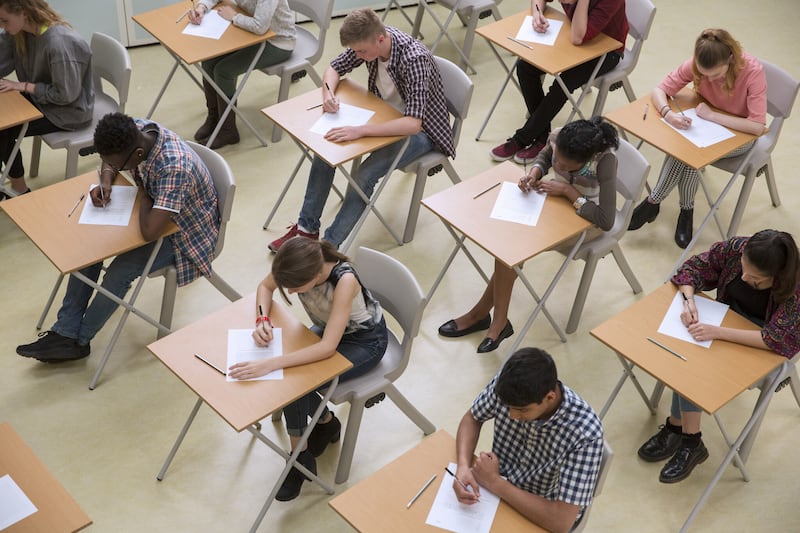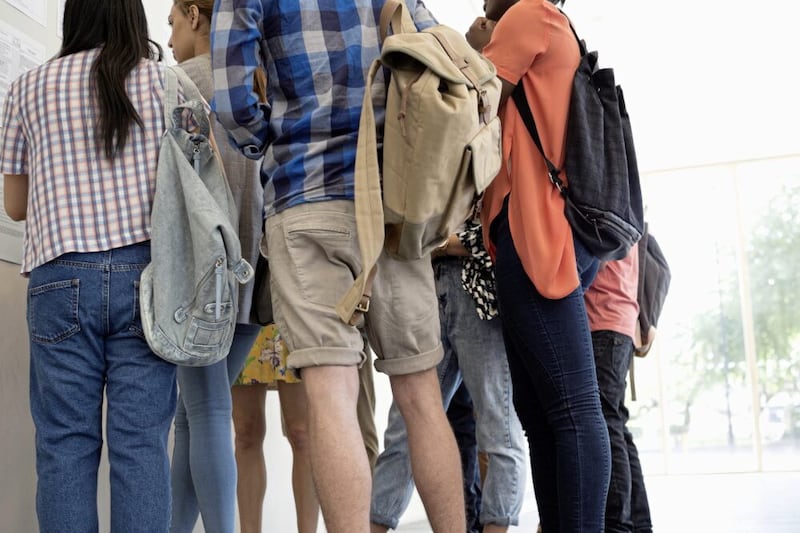ALMOST 30,000 students across Northern Ireland will tomorrow receive their GCSE results with predictions that grades will fall from pandemic highs, but remain above 2019 levels.
Most pupils will visit their schools to collect their exam results following the return to in-person exams this year.
Tests were cancelled in 2020 and 2021 due to the ongoing disruption caused by the coronavirus crisis with exams held for the first time since 2019.
A total of 29,842 students will receive their grades tomorrow, with most entered for GCSE qualifications set by Northern Ireland’s examinations body, the Council for the Curriculum, Examinations and Assessment (CCEA).
Figures covering GCSE entries from students in Northern Ireland, England and Wales will be published by the Joint Council for Qualifications (JCQ).
Traditional A*-G grades are used in Northern Ireland and Wales, while in England these have been replaced in with a 9-1 system, where 9 is the highest.
It is expected that top grades awarded to this year’s GCSE students will fall in line with the move back towards pre-pandemic grading.
Fewer top grades are predicted compared with 2021, but more than the number awarded in 2019.
Last year, the proportion of GCSE entries awarded top grades surged to an all-time high after exams were cancelled for the second year in a row due to Covid-19 and students were instead given results determined by their teachers.
Almost 40 per cent of GSCE entries in Northern Ireland were awarded A or A* grades in 2021. The proportion of entries awarded top grades by teachers increased by 3.6 percentage points to 39.9 per cent.
Professor Alan Smithers, director of the Centre for Education and Employment Research at the University of Buckingham, said the pattern for GCSE grades this year is likely to be similar to the change seen in A-level results last Thursday.
He said it is expected that grades will move back to around halfway between those of 2021 and 2019, which could mean disappointment for many.
"In 2022, we can reasonably expect to see a drop in top grades, with many more failing to reach the pass level (C/4)," he said.
"We can take the A-level results as pointers."
As with A-levels, extra help was provided for GCSE students with the return to formal examinations.
CCEA had said it remained mindful of the effects of the pandemic and significant challenges faced by pupils with grade boundaries set to help ensure fairness for students.
This year's GCSE pupils, most of whom spent large parts of their studies learning through home-schooling, were also given advance information on topics, formulae and equation sheets for GCSE maths, physics and combined science exams.
CCEA has also set up a dedicated results helpline to offer advice and guidance to students. Anyone with queries regarding CCEA results can call 028 9026 1260 or email helpline@ccea.org.uk
Mairead Monds from the NSPCC has also urged young people to seek support during the exam results period.
"Young people have told our Childline counsellors that they have been feeling anxious and stressed about revision and exams, and some have also said that they felt underprepared after studying from home for such a long period of time," she said.
"We often hear that they are worried their grades will be lower than they need to get into their chosen course, and they feel anxious and unsettled because they feel it’s all out of their control.
"Some young people think their whole future depends on these results and this is their only chance to get onto the further education course or apprenticeship that they really want.
"Often, they have high expectations for themselves, or their family may have put them under pressure to perform well.
"Now that the results are about to come out, it’s vital that they feel supported and listened to.
“If any young person is feeling worried about their results, I’d urge them not to bottle things up but to talk to someone about it."
Young people can get free, confidential support and advice from Childline at childline.org.uk or by calling 0800 1111 for free.
